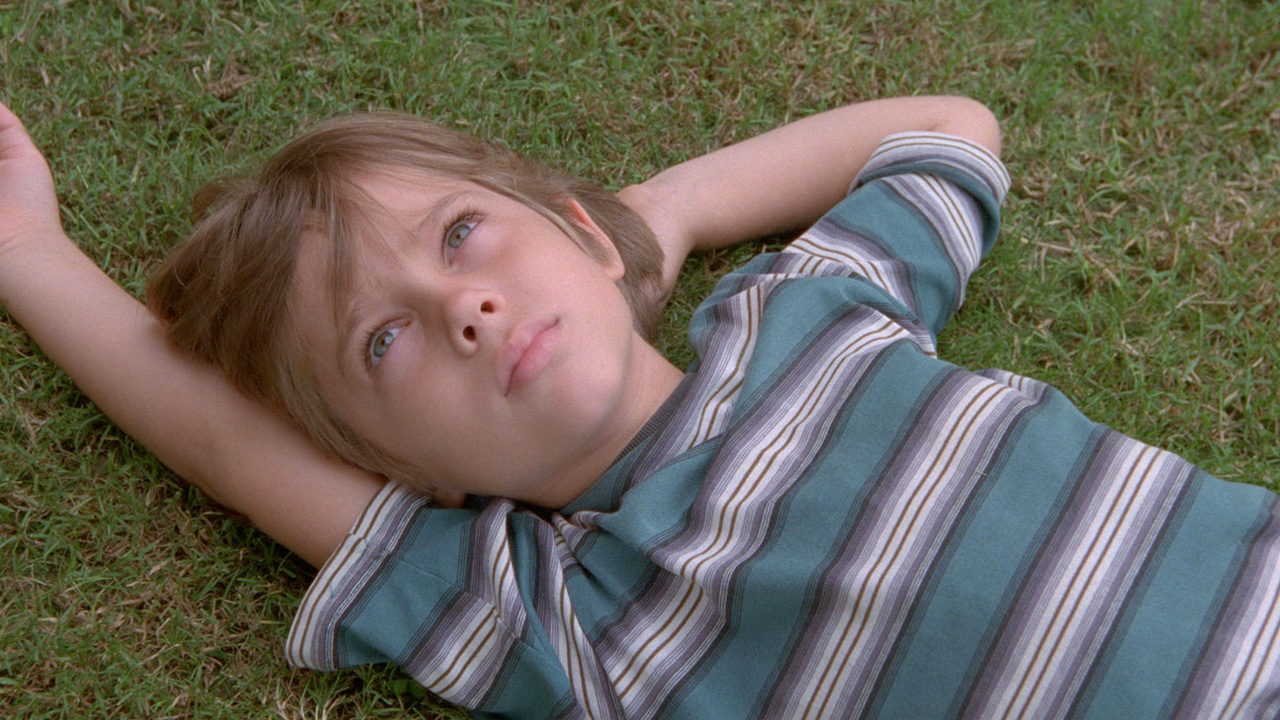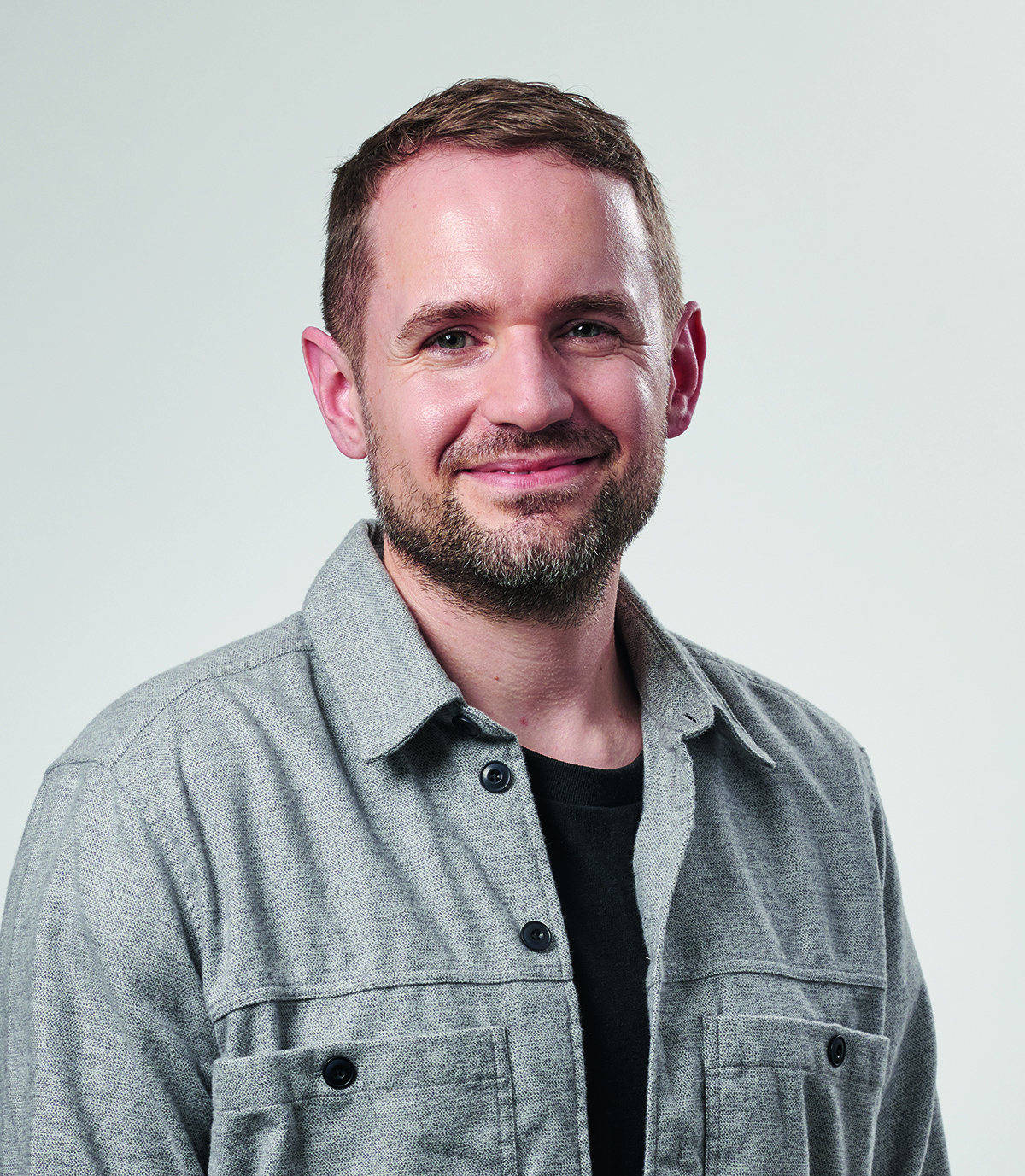Richard Linklater looks back on Boyhood: interview

Boyhood was named Total Film's Film Of The Year in 2014, and it's now out on Blu-ray and DVD, riding a wave of awards success.
Charting 12 years in the life of Mason (Ellar Coltrane), Boyhood has struck a chord with audiences: for all of the audacity of its structure and production (filmed in small increments over 12 years), it's a uniquely personal viewing experience.
We caught up with writer/director Richard Linklater late last year to reflect on the film's reception and success:
Boyhood has been named Total Film's Film Of The Year 2014...
[Laughs] Oh, thank you. Thank you!
Did you realise it was going to be a special film when you started working on it all of those years ago?
Well, of course, it was obviously a unique undertaking, embarking on a journey that was going to take 12 years. The ambitions were obvious, but if others would like it, or if it would work the way I wanted it to work... that always remained to be seen. I was definitely excited about it. It was a pretty crazy undertaking. Think how many explorers headed out over an ocean where they didn't quite know where they would ever get to, and it must have been satisfying to hit land. I feel like I hit land. I didn't drift at sea and was never heard from again.
At what point did you feel like you hit land?
I felt early on that it was working. Between years one and two, two and three, I felt, 'Oh, this is going to work the way I want it to, technically.' If I had any doubts it was, 'would it be compelling in the way I hoped it would be?', which felt kind of dangerous because all the content of the film was so minimal. The real risk I felt wasn't so much in the form but in the content. Would audiences care about this family based on a bunch of material that's all the material that would get cut out of other movies? It's not the stuff of movie narrative, hardly. I was really just trying to represent the little things in life. It was an interesting test of audience identification. I thought they would identify with this family and grow to care about them, then care about the minutiae of their lives, that I was trying to mirror how all of our lives feel. Most of us aren't trapped in these huge dramas, we're kind of trapped in the moment-to-moment reality of our lives, and that's what I was trying to mirror, I guess.
Can you remember where the original idea sparked from?
Oh, absolutely. It was one of those 'a ha!', lightbulb-going-off moments: I saw the finished film. This film that everyone was slowly ageing in and it covered - in the US the school system goes from 1st to 12th grade - so I'd been thinking about this childhood movie for a while, and I was sort of stuck, so this 'a ha' moment solved my narrative problem, like, 'Oh I could tell it over those years, that would make structural sense.' I'm a big time structure guy. So that presented my narrative format. That was the good news. The bad news was that it was going to take 12 years to do it.
How much of the script did you have prepared in that first year of shooting?
Just the first year. It was a year-by-year undertaking. But I had it all largely plotted out, the bigger things that happen in the movie, mostly the parents moving around. We were following a general outline, but that was the fun part to be able to spend that time thinking about it. And every year... Most films don't afford you the opportunity to work that way. To shoot, edit, think, write and do all that again.
Did the actors contribute much to their characters, or were they following your script for the most part?
It was a total partnership. We jumped off the cliff together with the right people. I mean the kids are a little different - when they're young you're sort of manipulating performances out of them - but one of the most satisfying, fun elements of this was seeing them grow into their characters and become them. And I would say that's not really Ellar at the beginning of the movie, but by the end that feels to me that that's Ellar. It was a fun collaboration, it was a unique thing. An actor doesn't usually get 12 years to shape a character: in one film, anyway. You do over, say a TV series or something, but in one film, to shape a character is kinda unique.
On the days you were actually shooting, did it feel like a normal film?
It certainly started like one. But over the years I will say it gained a momentum. I think one of the worries would have been that over time people lost interest, but in fact the opposite happened. The more time went on, the more people felt invested in it, cast and crew alike. The crew would come back and it was like a family reunion. I'd say a lot of the people had worked for 10, some all 12 years: it was unbelievable. But shot-by-shot, it's just another movie. I don't know what you could ever do to get out of that.
When you watch Boyhood back does it feel like a trip through time?
Everything about Boyhood is a different league. I take it differently, I react to it differently, it resonates differently than any other thing I've done. So the times I've watched it, or watched it with an audience, I've always been really pleased just to get swept up in the time of it. Like any other movie I remember, you can't really watch it in the same way an audience could, but in Boyhood, strangely, I see it more like a regular audience member than any other film I've done. I get swept up in it, and I guess I kind of get emotional about it, the same way anybody would. It's very strange - hard to describe. I feel it in a way I hope audiences do.
Was the Star Wars line a complete coincidence?
We kind of figured there probably won't be another Star Wars, so when I first heard the Star Wars movies were actually happening again, I was like, 'Oh cool,' and my next thought was, 'Oh wait, how will that affect that thing in the movie that we referenced.' And now it gets a knowing chuckle, but at the time we did it, you wouldn't know necessarily. So I guess it's only a knowing chuckle.
Boyhood is not your standard awards season film, but it's already generating a lot of buzz. Do you pay much attention to that stuff?
Well, the way that stuff goes you're kind of forced to, because they want you to show up at events and all that stuff. I mean, that's flattering. The film itself seems to have checked the boxes it needs to to have qualified for that kind of talk, it's done just well enough at the box office, it seems relevant enough, it's big enough. It's kind of an epic film even though it's kind of an indie, I think it's big enough. But what the hell, you can't really control any of that for sure.
Is it helpful for film of that size to get that buzz going?
Yeah, as a filmmaker I kind of look at it that way and go, 'Oh, that's kind of an outgrowth of marketing,' or something. If more people see it, what the hell?
Your films are very accessible but they're surprisingly experimental - are there any techniques you're desperate to try in the future?
Nothing in particular right now, I've arrived on the set of my new movie right now. It's a big ensemble comedy. I don't really think format, I think story. If the story that I'm wanting to tell requires something like that then I'll try to find the form for it.
What can you say about That's What I'm Talking About?
It's a college comedy. It's more of a continuation of Boyhood actually. It starts right where Boyhood left off, a guy arriving at college. Not the same guy by any means, but in my experience it kind of feels close.
And it's a spiritual sequel of sorts to Dazed & Confused...
Yeah, it is in my mind. It takes place in [the '80s]. [None of the original characters return], but I hope it has that same familiar feel.
It sounds like like the ultimate Richard Linklater film - coming of age, baseball, set in Texas..
[Laughs] I don't know, I thought Boyhood was the ultimate Linklater film [laughs]. I obviously don't think that way. I think it's my next film, but I don't know if it's my ultimate. I have some other things I'd like to think are my ultimate, but they're down the road always.
Boyhood is out on Blu-ray and DVD now.
Bringing all the latest movie news, features, and reviews to your inbox

I'm the Editor at Total Film magazine, overseeing the running of the mag, and generally obsessing over all things Nolan, Kubrick and Pixar. Over the past decade I've worked in various roles for TF online and in print, including at GamesRadar+, and you can often hear me nattering on the Inside Total Film podcast. Bucket-list-ticking career highlights have included reporting from the set of Tenet and Avengers: Infinity War, as well as covering Comic-Con, TIFF and the Sundance Film Festival.


